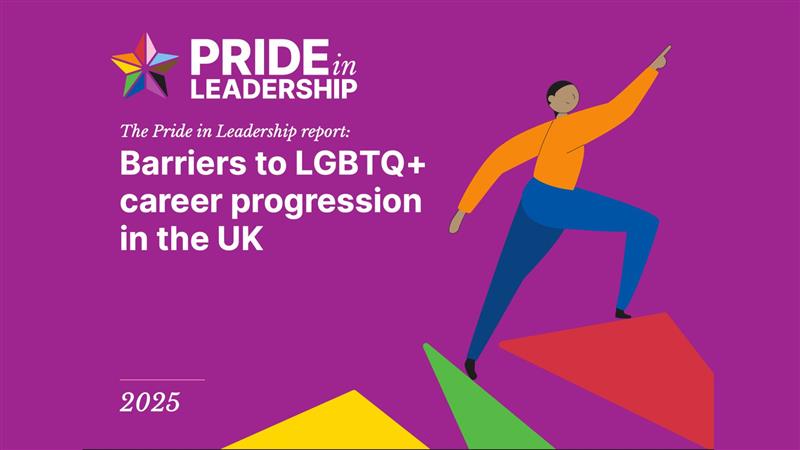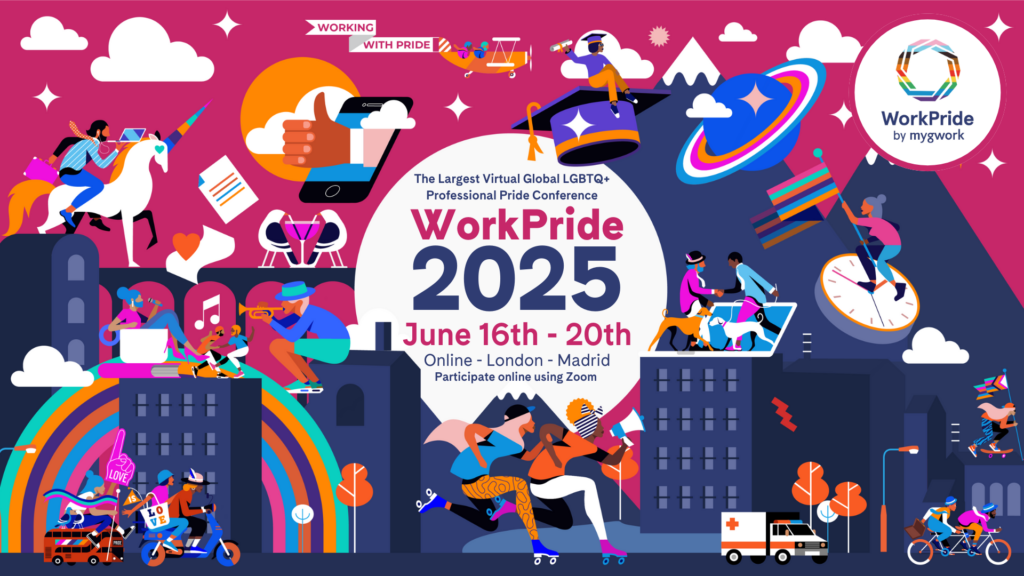A new UK report reveals that homophobia and exclusion remain alarmingly common in the workplace, particularly for LGBTQ+ professionals striving to progress in their careers.
The study, which surveyed over 1,000 LGBTQ+ professionals, found that 85% had faced career obstacles due to their identity. These included being passed over for promotions, a lack of LGBTQ+ representation in leadership, and, in some cases, verbal or even physical abuse.
As careers progressed, so did the challenges. One in four LGBTQ+ business owners or entrepreneurs reported experiencing workplace abuse. “This research reflects what I’ve seen as a gay leader,” said Matt Haworth, co-founder of Pride in Leadership. “From homophobia in meetings to being invited to countries where I could be sentenced to death just for being me – the playing field is far from level.”
HOMOPHOBIA AT WORK
Far from being a relic of the past, workplace discrimination against LGBTQ+ people remains a pressing issue. Ongoing political debates in both the UK and US continue to restrict discussions of LGBTQ+ identities in schools and public institutions, fostering a culture in which many feel pressure to hide their identity from a young age.

More than half (56%) of those surveyed said their LGBTQ+ identity influenced their career choices, deterring them from pursuing certain industries, roles, or locations due to fear of discrimination or lack of support. One in six (16%) believed they had been denied job opportunities because of who they are.
One respondent shared: “I was told they didn’t want poofs working for them.” Another recalled how a company director reversed her decision upon learning the candidate was gay and HIV-positive: “She did a total 180°, and the hiring manager sat there dumbfounded.”
DISCRIMINATION LINKS WITH LOCATION
Location played a critical role in career decisions. A striking 80% of LGBTQ+ professionals said their identity influenced where they chose to live. One in four reported turning down job offers or avoiding applications in regions they perceived as less LGBTQ+-friendly.
As one participant explained: “I’ve been approached for roles in the Middle East. Despite higher pay and great material conditions, I would never put myself in that environment as a gay man – for mental health, legal, and social reasons.”
OUT AT WORK: THE REALITY fOR LGBTQ+ PROFESSIONALS
While many LGBTQ+ individuals are open about their identities in their personal lives, the workplace remains a more difficult environment. Just over half (52%) were out to colleagues by age 24, rising to 82% by their mid-thirties. One respondent shared: “Coming out allowed me to be more ‘myself’ at work and saved the energy I used to spend staying closeted.”
However, 32% said they never disclose their identity to clients or customers. “I’ve lost followers and potential customers when posting LGBTQ+ designs,” one respondent said. “It’s something I’m working on accepting.”
THE IMPORTANCE OF ROLE MODELS & ALLIES
Adrien and Pierre Gaubert, co-founders of myGwork, say they are not surprised by the findings. “These results highlight a sobering reality: inclusion in UK workplaces still has a long way to go. While corporate DEI commitments are growing, systemic barriers remain deeply rooted.”
Their own research echoes these concerns. LGBTQ+ professionals – especially women and non-binary people – face substantial obstacles to career progression. A striking 79% believe it’s harder for LGBTQ+ women and non-binary individuals to break the glass ceiling compared to cisgender heterosexual women. These challenges are compounded for those with intersectional identities.
The Gauberts also highlighted the importance of visible LGBTQ+ role models in leadership. “Without representation at the top, many LGBTQ+ professionals struggle to see a future for themselves in leadership roles. Our latest survey shows that 80% of LGBTQ+ students and graduates believe their identity will hinder their path to senior positions. The same number said they’d be more likely to accept a job offer if a company had visible LGBTQ+ leaders. This sentiment is even stronger among graduates of colour, who place even more value on representation and allyship.”
TIME FOR ACTION
Claire Ebrey, co-founder of Pride in Leadership, said she hopes the report will be a catalyst for meaningful change. “This report should empower organisations and policymakers to create truly inclusive environments where LGBTQ+ professionals can achieve their potential.”
The report outlines a set of urgent reforms, including stronger legal protections, transparent hiring practices, and inclusive leadership. It urges companies to move beyond surface-level gestures – like waving a rainbow flag – and instead focus on systemic change: platforming role models, investing in LGBTQ+ training, and stamping out homophobia and transphobia disguised as “banter.”
Matt Haworth added: “Now is not the time for organisations to step back from DEI initiatives. We need renewed commitment. Everyone deserves a fair chance to succeed – regardless of who they love or how they identify.”

INCLUSION: A BUSINESS IMPERATIVE
The Pride in Leadership report has received backing from public figures, including Baroness Barker, a member of the House of Lords, who said: “We are fortunate to be the first generation of LGBTQ+ people who can pursue careers without hiding essential parts of ourselves. But if we are to ensure future generations have that same freedom, we must act on this report’s recommendations.”
“Inclusion isn’t a trend – it’s a business imperative,” concluded Adrien and Pierre Gaubert. “If LGBTQ+ professionals can’t see themselves at the top, they won’t stay long at the bottom. True equity means more than representation – it requires leaders to build workplace cultures where everyone can thrive, not just survive. Attending conferences like WorkPride is a powerful step toward making this vision a reality.”
WORKPRIDE 2025: CELEBRATING ALLYSHIP
Now in its sixth year, WorkPride 2025 will run from June 16th to 20th, under the theme Your Allyship Journey Starts Here. The free, virtual global conference spans five days and offers a vital platform for LGBTQ+ professionals, allies, and inclusive employers to engage in meaningful discussions around diversity, equity, and inclusion. Click here to sign up or learn more.









































